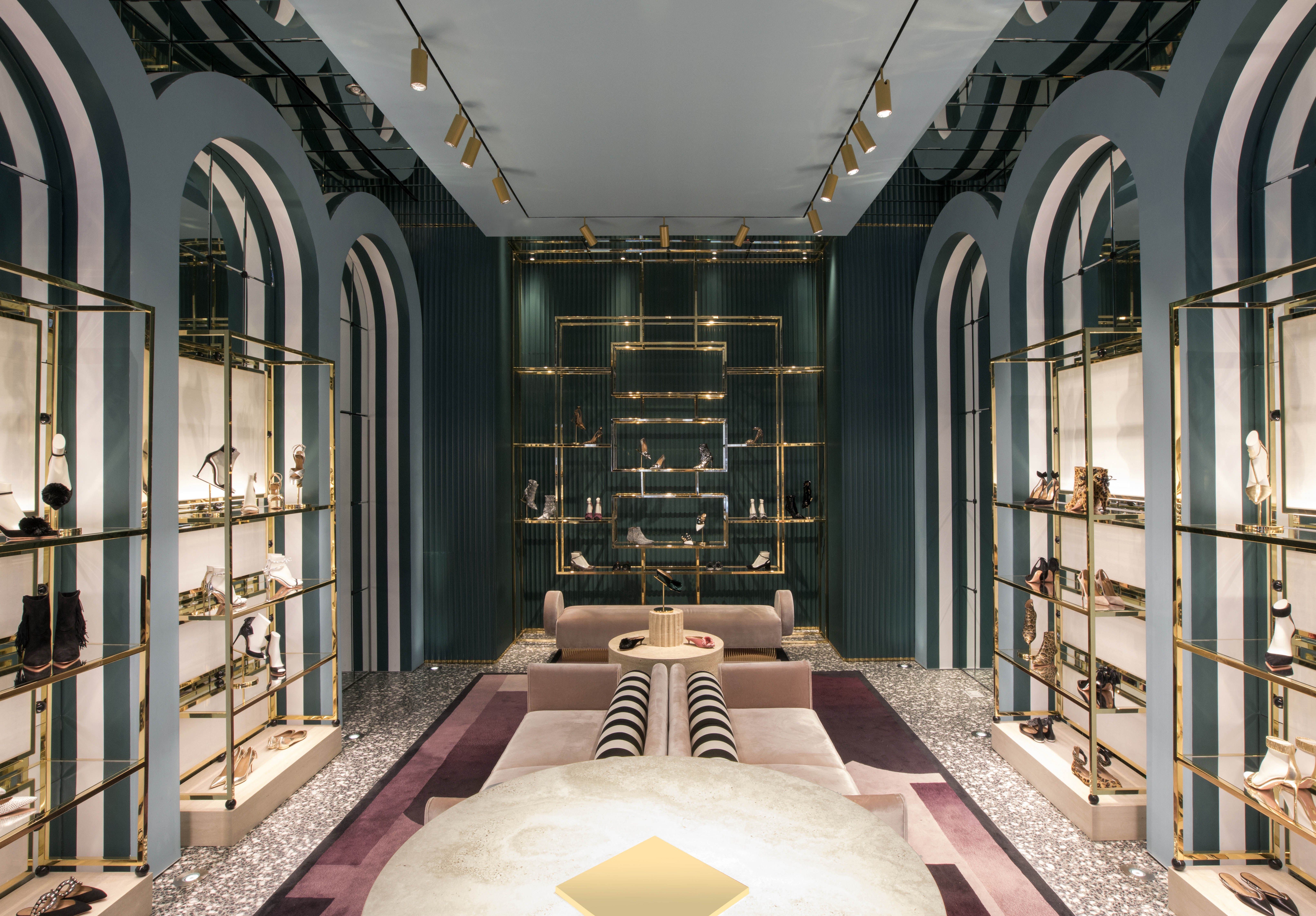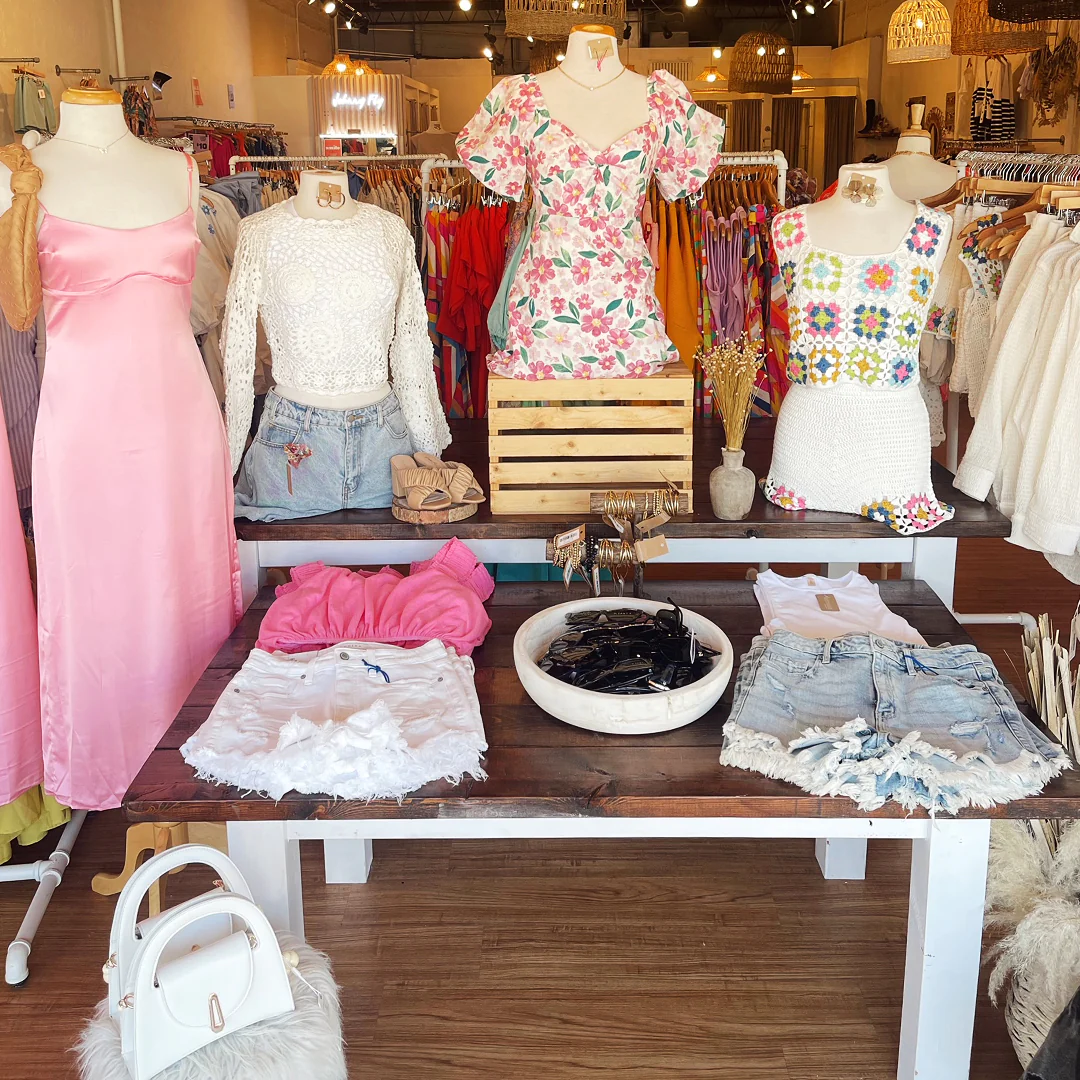Discovering the Evolution and Influence of Clothes on Modern Style Trends
The advancement of clothing has dramatically influenced modern fashion fads, merging historical precedents with innovative innovations. Iconic figures like Coco Chanel and Yves Saint Laurent reinvented the garment industry by introducing concepts that focus on convenience and availability, which proceed to resonate today. On the other hand, technical strides in locations such as 3D printing and smart textiles are redefining design possibilities and consumer experiences. Furthermore, the expanding focus on inclusivity and sustainability is reshaping market requirements. As we consider these complex impacts, one have to wonder about just how these components jointly redefine style's function in showing and shaping contemporary culture.
Historic Style Influencers
In the tapestry of fashion background, certain numbers have left an indelible mark, forming the patterns and styles that define whole eras. Coco Chanel, a cutting edge designer, redefined females's fashion by presenting comfy, classy clothes that left from restrictive corsets.
Elsa Schiaparelli is an additional critical number, renowned for her avant-garde styles that included surrealist art, collaborating with Salvador Dalí to create wayward pieces that tested standard looks. Her innovative use shade and bold patterns reverberates in modern style. Yves Saint Laurent, meanwhile, democratized haute couture with prêt-à-porter collections, bringing runway styles to the masses and establishing a criterion for modern ready-to-wear lines.
These visionaries, to name a few, not just changed fashion in their times however additionally established enduring trends that resonate in today's style sector, giving a foundation upon which modern-day developers proceed to innovate and build. Their traditions highlight the value of imagination and bold in vogue's ever-evolving story.
Technical Innovations in Style
Among the vibrant landscape of the fashion business, technical advancements stand at the forefront of development, reshaping how developers develop and customers involve with fashion. The assimilation of 3D printing has reinvented layout procedures, making it possible for developers to trying out intricate frameworks and lasting materials that were previously inconceivable. This technology promotes quick prototyping, lowering waste and quickening manufacturing times.

Smart textiles, installing technology into materials, are additionally changing the sector. Advancements like temperature-regulating and self-cleaning fabrics use improved functionality and convenience. Wearable modern technology, integrating features like physical fitness monitoring and interaction, adds a brand-new measurement to style, combining visual appeals with functionality.
Social Changes and Design
As technical innovations continue to reshape the apparel industry, cultural shifts are equally influential, redefining design and consumer preferences. In recent years, the rise of social media platforms has accelerated the dissemination of international style fads, allowing diverse cultural impacts to exist side-by-side and merge. This electronic interconnectivity has helped with the rapid exchange of concepts, causing a much more inclusive and diverse analysis of style that reflects the multifaceted nature of modern-day society.
Cultural awareness and appreciation have actually triggered designers to draw ideas from a wider spectrum of historic and ethnic contexts, incorporating standard motifs with modern appearances. This blend has resulted in style that resonates with a wider target market, advertising a sense of identity and belonging across various demographics. Furthermore, go to this site the increasing need for personalization has actually driven brands to offer personalized choices, allowing consumers to share uniqueness while mirroring their cultural heritage.
Additionally, moving social worths have impacted fashion, with inclusivity and variety becoming central styles. The industry has actually started to embrace versions and influencers of different physique, ethnic backgrounds, and sex identities, tough traditional elegance standards. This makeover underscores the power of social changes in shaping the future of style, as design ends up being an extra authentic expression of collective and individual identification.
Sustainability and Modern Design
While the fashion industry continues to evolve, the crucial for sustainability has actually ended up being significantly immediate, affecting modern-day design practices. The surge of slow-moving style, which stresses top quality over amount, motivates consumers to invest in timeless pieces rather than short-term fads.
In addition, modern-day style is defined by its development in reducing waste and promoting circularity. Strategies such as zero-waste pattern cutting and 3D knitting are obtaining traction, enabling designers to develop garments with marginal material waste. Additionally, brand names are taking on transparent supply chains, guaranteeing accountability and fostering customer count on. This approach not just alleviates environmental influence yet likewise enhances the social duty of fashion houses.

Future Trends in vogue

Sustainability will certainly remain to be a driving force in shaping future fashion trends. The sector is progressively adopting eco-friendly materials and honest production techniques, replying to an expanding consumer need for responsible methods. Innovations such as bio-fabricated products and closed-loop recycling systems are set to redefine exactly how clothing is produced and taken in, reducing ecological influence while preserving design and quality.
Social shifts, consisting of the rise of inclusivity and variety, will certainly also play a crucial duty. As culture ends up being much more mindful of social issues, fashion is anticipated to become a platform for expression and modification. Developers will likely focus on producing collections that mirror a broader variety of experiences and identifications, promoting depiction and ease of access.
Final Thought
The advancement of clothing substantially influences modern-day fashion trends, where historical impacts combine with modern designs. Key figures like Coco Chanel and Yves Saint Laurent have redefined design, while technical technologies such as 3D printing and clever textiles expand creative possibilities. Cultural shifts towards inclusivity and sustainability force brand names to take on moral techniques and embrace diversity. This ongoing evolution underscores fashion's role as a mirror to societal worths and technical innovation, recommending a future abundant with technology and inclusivity.
The evolution of clothing has actually substantially influenced modern style fads, merging historical criteria with innovative advancements.Amidst the vibrant landscape of the style industry, technological innovations stand at the leading edge of development, improving exactly how designers produce and consumers involve with fashion.While the fashion market continues to advance, the imperative for sustainability has actually become significantly urgent, influencing contemporary design techniques. As sustainability becomes ingrained in contemporary design, it leads the way for a much more conscious and accountable browse around this web-site fashion market.
The evolution of garments significantly influences modern style trends, where historical impacts merge with modern designs.